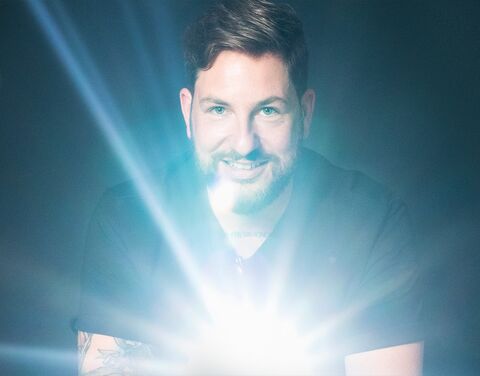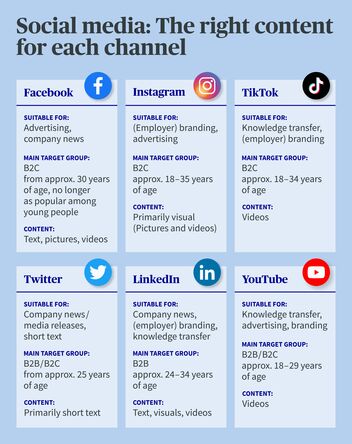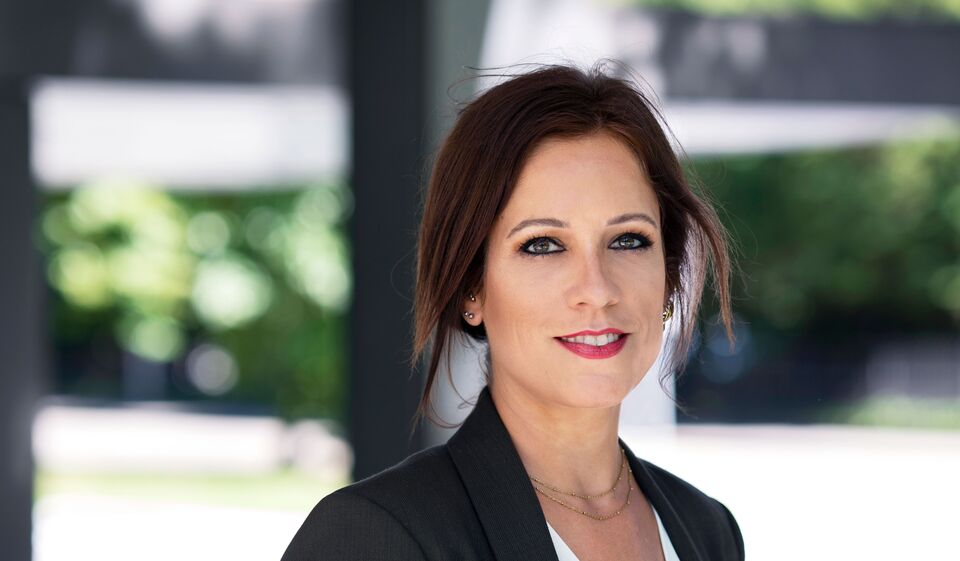
Social media for SMEs: Is it worth it?
Our lives play out more and more online. Especially for younger customers, nothing happens today without social media. But does every start-up or SME really need to jump on this bandwagon? And if so, how can social media marketing be implemented as cost-efficiently as possible? Three companies describe their experiences.
“Social media? I don’t have the slightest interest in that.” Fathima Ifthikar hears this often. The 35-year-old supports companies in unlocking their potential on social media and teaches at the University of Lucerne as well as at the Migros Klubschule in Zurich. “The use of social media channels is often neglected among many SMEs because unlike large companies, they don’t have the necessary resources to comprehensively deal with the subject. For this reason, many companies are done with the issue after they finish creating a company homepage,” Ifthikar explains.
Nearly one-third of SMEs use marketing on social media.
This is also confirmed by the latest numbers from the University of Applied Sciences of the Grisons: According to a research report published in October 2020, only about one-third of Swiss SMEs are present on social networks, with the dominant platforms being Facebook at 29.3%, Instagram 16.1%, and LinkedIn at 12.4%.
However, the use of social media is becoming more and more relevant for start-ups and SME, as the share of the Swiss population that is active on platforms like Facebook, Twitter, and Instagram is growing by the day. “Companies have to be present where their customers are. And because 90% of all people now take care of almost everything using their cellphone, start-ups and SMEs need to be online if they want to be found there.
Increase visibility through social media
Tony Mola, founder and owner of Black Frame Studios in Zurich can also confirm this. The trained graphic designer and art director founded his content creation agency eight years ago and, together with his six employees, develops digital content such as photography, video productions, and storytelling campaigns for companies and events. Helping customers tap into the potential of social networks is part of the agency’s core business, and large corporations are not the only beneficiaries – its customer portfolio now also includes numerous SMEs.
The 34-year-old is well aware that social media also offers small and medium-sized enterprises a wide range of application options and potential for added value. “Social media channels are a good means of increasing a company’s visibility. After all, if nobody knows you, nobody will buy from you. That applies to luxury brands as well as to products like pool cleaners or a pizzeria.”
However, the focus is not on sales, but rather on building a relationship with existing customers and, most importantly, new customers. “As the saying goes: The users of today are the buyers of tomorrow,” he adds. Lamborghini won’t sell any cars right now to the predominately underage target group with a business account on TikTok, but companies can win fans who identify with the brand today – and who may buy one in twenty years.
Black Frame Studios
Black Frame was founded in 2015 by Tony Mola, a trained graphic designer and art director. Under the motto “We can do anything, but not work miracles,” the content agency creates content such as videos, photography, and storytelling for large companies and SMEs, as well as for events such as festivals or corporate gatherings – both online and offline. The company based in Zurich now has six employees and has created campaigns for companies such as Coop, Swiss Ski, Lamborghini, and the Street Parade.
SOM expert Fathima Ifthikar feels the same: “A presence on social media not only allows companies to increase their own reachability on the Internet, but also to give themselves a face and let the public have a look behind the scenes. This makes them likeable and approachable – and strengthens the brand.”
Target group, purpose, and product determine the channel
Black Frame doesn’t just produce content for customers. It is also very active on social media itself: “We can be found on all common channels, but we have a clear focus on Instagram. Here, we maintain dialog with our community, reach out to potential customers and talent, and present our projects. Instagram has become more important to us than our website because the platform is faster, easier to navigate, and more intuitive.
On the other hand, Black Frame is not longer active on Facebook, as they believe the price/benefit ratio is not worthwhile. LinkedIn has become much more important, says Mola: “LinkedIn is where the decision-makers are. We use this channel to establish the best possible positioning for our company and our work.”
According to Mola, you can’t just use one post for all platforms in general. Instead, you have to adapt content to every channel since the target groups and language of the platform, whether it be Instagram, TikTok, or LinkedIn, are completely different. “Conversely, this means that you first have to analyze the various social media channels and understand them before you actively use them,” the entrepreneur explains.

SMEs also need a strategy for social media
Fathima Ifthikar also shares this opinion: “In a first step, you should always consider the following question: What is my target group, and what channels is it on? Young people are primarily on TikTok and Snapchat; the main target group of Instagram is 21 years and older, while Facebook users generally range from 35 right through to those who have reached retirement age.
“You should therefore think in advance about what you want to achieve with social media, get to know the different platforms and analyze your peers.” You don’t need a ten-page paper to create a social media strategy, but it does make sense to jot down a few ideas before you get started: “Social media needs time, resources, and a budget. That shouldn’t be underestimated. For this reason, it’s better to have a carefully curated profile on one to two channels than to be half heartedly on many.
Less effort and fast results with social media marketing
Severin Candrian and his company feey AG are long past being a beginner with social media marketing. Originally from Engadin, he founded his online shop for indoor plants together with Sven and Janko Jakelj as well as Gabi Troxler in 2019 with the goal of helping anyone interested to have a green oasis in their own homes – or as feey calls it: Making plants accessible to even those without a green thumb.
That’s why feey focuses on the details: “We are not a large retailer who simply orders and sends goods. We pot plants in our own special soil, treat the plants against parasites, and care for them before they are sent to the recipient with detailed instructions and a personal message.” Everything is made by hand and in loving attention to detail.
While feey AG relies on personal touches for the customer experience, for its marketing as a start-up it turns completely to digital channels. “Especially for a young start-up, it is easier to start with social media marketing. The effort to post is low and you know immediately what works and what doesn’t. Billboard marketing, on the other hand, is time intensive and expensive, and you can’t measure the impact,” Candrian explains regarding the advantages.
feey AG
“Plants? They’re cool, but mine always die on me”: Sven Jakelj, Severin Candrian, Gabi Troxler and Janko Jakelj are working with their company feey, their online shop for indoor plants, to ensure that this statement becomes a thing of the past. And the concept is working: In 2021, the start-up won a million-franc deal in the Swiss version of show “Höhle der Löwen” (Shark Tank), swiftly followed by the 2022 Digital Champion award. The company, which was founded in 2019, now has 18 employees and its home base in Flawil in the canton of St. Gallen.
Leveraging social media – getting it right
Only those who produce good content can really benefit from the advantages of social media marketing. How can start-ups and SMEs efficiently create the right content? Entrepreneurs share their tips and experiences.
1. Rely on knowledge transfer and exchange
feey also works according to the top-down principle: “First we research what people google on the subject of indoor plants and create a larger video suitable for YouTube or a blog post. We then use parts of that, so-called snippets, for TikTok and Instagram,” explains the design lead at feey. We post every day, and sometimes several times a day on Instagram and TikTok. “Except Saturdays. Saturdays is our day of rest,” he laughs.
He creates the content for Instagram himself, but for TikTok the start-up hired its own content manager. “We believe that TikTok is the next big platform, which is why it’s important for us to be very visible on it.”
The plant shop relies heavily on organic content, i.e. unpaid content: “We don’t aim first and foremost to sell products through social media, but rather we want to position ourselves as plant experts.” Candrian advises other start-ups and SMEs to be open to the subject of social media and to simply try it out: “Social media channels allow companies to exchange ideas with their community, to have a direct dialog with them, and to get their opinions. In addition, you can post authentic and personal content showing people and stories behind the scenes to strengthen your own brand – anyone following you on Instagram will likely also prefer you over the competition in the real world.
2. An agency isn’t necessary: Leverage in-house know-how
One point that should not be underestimated according to Fathima Ifthikar: “It’s really how it is: If I’m looking for a hotel or service, I first do research online. And I usually choose the provider or the hotel that looks better and more professional to me online or on social media.” That’s why it is also a good idea from a business standpoint to invest the necessary resources.
You don’t necessarily need to hire an external agency to do so. Rather, you could involve a younger or digitally savvy employee, for example, who also actively uses social networks in their private life. “Use the know-how in your own ranks, tap into the knowledge of your employees.”
3. Plan for sufficient resources
Simon Ragaz also relies on digitally savvy employees. The trained chef, who has been operating his company Ragaz Catering since 2009, manages two business accounts – one for Ragaz Catering and the second for his own event location “Stufenbau.”
Ragaz is convinced that social media is growing ever more important as a communication channel, especially in his industry. “As a catering company and organizer of private or corporate events, it is our only way to communicate with the public and to be seen.” That’s why Ragaz has been posting regularly on Facebook and Instagram for years. He chose these two channels since his target group are active there – and because he uses them himself, he explains with a smile.
But capacity bottlenecks quickly became an issue for him as well. “Since I mostly took care of the channels myself, I constantly lacked the resources to pursue the issue of social media consistently. Although I had created a nice little editorial plan, it was quickly shelved. In addition: Whenever I had time to consider relevant posts, I sat at my desk empty handed, with no corresponding content. And if I had pictures of current events that I could post, my hectic day-to-day work got in the way. It couldn’t go on like that.”
The business owner has responded by hiring a freelancer on an hourly basis, initially as a trial. “She is going to help us professionalize our social media profile and hopefully add a fresh, young look and provide an outside perspective.”
The new profile is to be redesigned with the future in mind, and in particular, will be thoroughly analyzed to discern what works and what doesn’t. If possible, Ragaz also wants to reserve a small marketing budget for this purpose in the future. After all: “I have seldom sponsored posts or analyzed them after the fact. This will change in the future to ensure we can use the budget in a more targeted manner and generate less scatter loss,” Simon Ragaz explains.
Ragaz Catering
From small celebrations to corporate events with 3,000 guests – the eight-person team of Ragaz Catering with its catering and event experts are glad to assist with individual requests and offer a range of services from delivery through to all-inclusive packages for the entire event organization. The company, which was founded in 2009, is specialized in events at off-site locations, but also offers events at its own event location, “Stufenbau,” and owns a 100-meter-long charcoal grill, the longest in Switzerland.
4. Start small and celebrate quick wins
The entrepreneur advises beginner social media users to start small: “If your goals at the beginning are too big, you will just get frustrated if you can’t achieve them.” Simon Ragaz is convinced that social media can translate into added value for many start-ups and SMEs. Nevertheless, not every dentist needs to upload pictures of their work: “There are certainly companies that are successful without social media. And those that are not successful won’t be overnight just because they suddenly have a Facebook account.” When he’s right, he’s right.
Social media for SMEs and start-ups: The most important lessons learned
To ensure that you can make easier decisions about whether and, above all, where it makes sense to have social media marketing, here are the main points again for you at a glance:
- Social media enables you to have direct contact and interaction with your (potential) customers.
- The product or service can be great – but if nobody knows about it, you won’t be able to sell it. You can also achieve visibility with a small budget via social media.
- As is so often the case, the same applies to social media for SMEs and start-ups: Less is more. It’s even better to exploit the potential of one or two channels correctly than to try to juggle too many balls at once.
- Target group and channel have to match: Analyze various platforms and find out where your primary target group spends its time.
- A solid SOM strategy will help you achieve your goal in a cost-efficient manner.
- Social media can also be leveraged successfully with a limited budget – if you plan time for it yourself, hire SOM-savvy employees, or work together with freelancers.
- Small steps, big impact – start small and see where your social media journey takes you.







